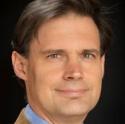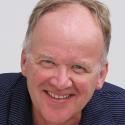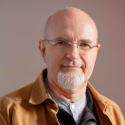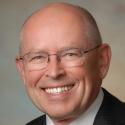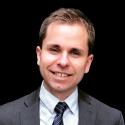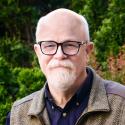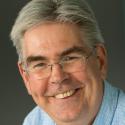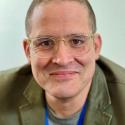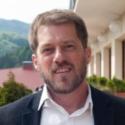2022 Theologians Network
- Image

Many evangelical theologians teach in universities, seminaries, and colleges with little opportunity for dialogue, fellowship, and encouragement from their evangelical brothers and sisters. The Theologians Network has been designed to provide this context and to make available an opportunity to interact with some of the world's leading evangelical scholars.
Applicants should be involved in full-time theological education (such as teachers, professors, and theology students).
Network Leadership
Network Speakers
Ralf Bergmann, born in 1962, is married and has three adult children, two children-in-law and three grandchildren. He received his degree in physics and a doctorate from German universities. He is or has been mainly involved in semiconductor physics and technology, photovoltaics and optical… Read more
Leonardo De Chirico is the pastor of Breccia di Roma, a church that he helped plant in Rome in 2009, and Chair of the Theological Commission of the Italian Evangelical Alliance. Previously, Leonardo planted and pastored an evangelical church in Ferrara, Italy from 1997 to 2009. He earned degrees… Read more
Wayne Grudem is Distinguished Research Professor of Theology and Biblical Studies at Phoenix Seminary in Arizona. He is a graduate of Harvard (BA), Westminster Seminary-Philadelphia (MDiv, DD), and the University of Cambridge (PhD). He has served as the president of the Evangelical Theological… Read more
Dirk Jongkind is the Academic Vice Principal of Tyndale House, Cambridge, and an Affiliated Lecturer at Cambridge University. His main scholarly interest is the text and language of the Greek New Testament. He is also the editor of the Tyndale House Greek New Testament… Read more
Kaspars is an assistant professor of Old Testament interpretation at The Southern Baptist Theological Seminary. He was born in Latvia (Northern Europe) but grew up in California. Fascinated with ancient languages since his teens, he has studied Indo-European historical linguistics at the… Read more
Greg Pritchard received his Ph.D. in Religion in Personality and Society at Northwestern University. He has taught graduate-level courses on apologetics, theology, history, leadership, the New Testament, ethics, and Christian Thought at American, European, and Asian institutions of higher… Read more
John Stevens is the National Director of the Fellowship of Independent Evangelical Churches, a family of over 500 Bible-centred churches in the UK, a position that he has held since 2010. Prior to this he was one of the founding pastors of City Evangelical Church Birmingham, which was planted in… Read more
Daniel Strange is director of Crosslands Forum, a centre for cultural engagement and missional innovation. Formerly he was college director and tutor in culture, religion, and public theology at Oak Hill College, London. Strange is a contributing editor for Themelios, Vice-president of The… Read more
Ádám Szabados is a Hungarian theologian and the leader of the Hungarian Evangelical Forum. Until 2017 he had been a pastor for 20 years. He is married to Dóra and has two adult sons. He studied English literature and linguistics at the University of Veszprém (MA equivalent, with honours), and… Read more
Peter J. Williams is the Principal and CEO of Tyndale House, Cambridge. He was educated at the University of Cambridge, where he received his MA, MPhil, and PhD in the study of ancient languages related to the Bible. After his PhD, he was on staff in the Faculty of Divinity at the University of… Read more
Network Programme
Sunday, 22 May
Incorrect methods produce incorrect results. Or, as Marx said: "He who formulates the question, answers it." This is certainly true in theology. When we find ourselves in disagreement with contemporary liberal theologies, it is not sufficient to question their conclusions; we need to question the process itself that led to the problematic conclusions. In this session, we will look at seven methodological errors that contribute to erroneous conclusions in modern liberal theologies and one core issue that is the root of all seven.
In the 2021 ETS presidential address, Dr. Al Molher spoke of the four temptations for evangelical theology: fundamentalism, atheism, Roman Catholicism and liberalism. Following Mohler's insight, this session will analyze Roman Catholicism as a temptation by looking at some of the arguments suggested and assessing their biblical relevance for our work in Europe.
Monday, 23 May
Christians and, specifically, theologians are nowadays frequently considered irrelevant, unless they support a current secular mainstream. As public debates are often morally loaded, theologians are tempted to submit or self-surrender to secular and often quasi-religious claims. This session will examine the background of the current cultural landscape and the role theologians can play in bringing about a change that emphasizes the relevance of Christian faith. Changing the cultural landscape of whole nations and thus increasing the acceptance of Christian faith, requires intellectual, cultural, and social leadership rooted in biblical wisdom and courage.
The European Leadership Forum is not associated with any particular denomination or church but rather seeks to unite evangelical leaders from a variety of Evangelical Christian traditions. We hold to the essentials laid out in the Lausanne Covenant and the Evangelical Affirmations. Yet what informs the strategy and ethos of the Forum? What is the Forum trying to accomplish in the lives of the leaders who participate? This session will address these questions and include a robust discussion of ELF’s “Core Convictions” and “Leader Impacts” documents.
Tuesday, 24 May
The godfather of the phenomenology of religion Ninian Smart infamously declared that theology was a ‘conceptual albatross around the neck of religious studies’. Although often existing in the same university department, theology and religious studies have not had a good relationship. In recent years theologians such as Gavin D’Costa and Paul Griffiths have argued that religious studies can only, and indeed must, find its true home in theology. In this session, we will outline the need and shape of an evangelical theological religious studies to be developed under the disciple of missionary apologetics also known as ‘elenctics.’
The relationship between theology and local church ministry is often strained. Academic theology is perceived as too intellectual, obtuse, and irrelevant to the realities of pastoral ministry and mission. However, biblically faithful theology is essential because the church needs to be founded on the truth of God and his gospel, and equipped to meet the many challenges of our secular post-Christian context. Without a solid theological foundation churches and pastors will drift into liberalism and heresy. This session will encourage theologians to serve the church appropriately and churches to appreciate and benefit from the work of theologians.
Wednesday, 25 May
Wayne Grudem is a well-known Evangelical scholar and leader in the United States. He is the author of over 20 books, including his best-selling Systematic Theology. His experience in both the publishing and academic worlds provides him with unique perspectives on how academics and theologians engage in their work and with those around them. This interview will delve into those experiences and perspectives and reflect on decades of studying God’s Word and teaching others to do the same. This is a joint session of the Academic and Theologians Networks.
Both K.A. Kitchen and Rick Hess have made arguments that the names in the Old Testament fit the right time period (and place) for the various stories. A powerful argument has been made for the New Testament that the names fit the right place (and time period) for the events of the gospels. In 2018 Tyndale House began a ten-year project investigating and seeking (if possible) to develop this argument for the Old Testament as well. This session will provide the first public report on the progress so far, which has been significant.


